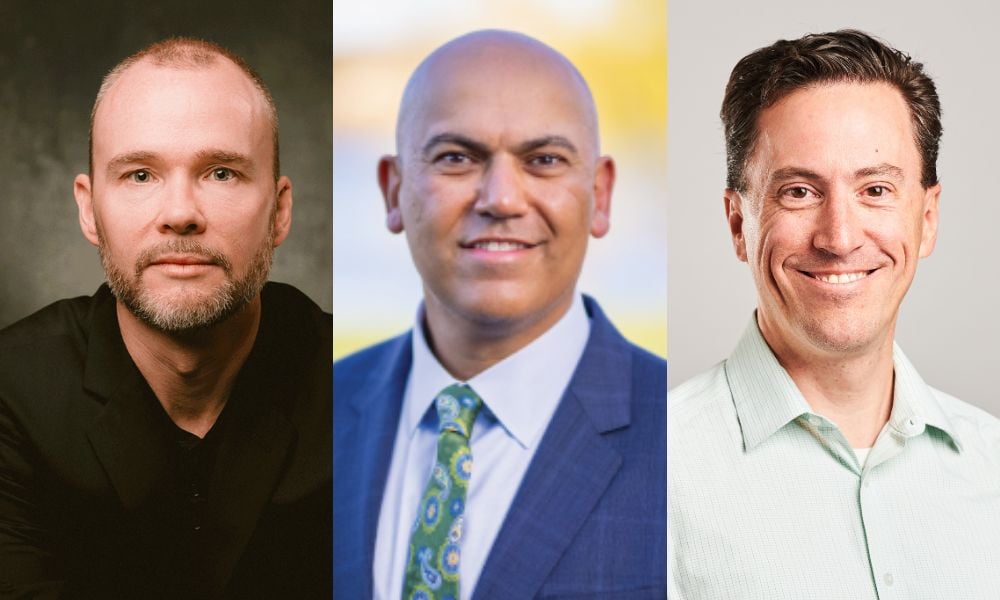

The Trump administration is now offering a one-month delay for automakers from newly imposed tariffs on Mexico and Canada as a temporary reprieve following pleas from industry leaders.
The tariffs, which went into effect on Tuesday, include 25 percent on goods from Canada and Mexico and 20 percent on those from China. Not long after the tariffs took effect, Canada and China responded with their own retaliatory tariffs, and Mexico indicated that a response was coming on Sunday.
Excuse us for asking, but what does all this auto tariff talk have to do with wealth managers simply trying to do their jobs on a daily basis?
Well, all the uncertainty surrounding tariffs seems to be unnerving investors, as evidenced by the more than 50 percent spike in the VIX, or so-called “fear index,” over the past month to more than 23.5. And when investors are unnerved, they turn to – yep, you guessed it – their trusted financial advisors for answers.
Drew Boyer, president of Boyer Financial Group, for one, said the recent volatility in the markets from President Trump's promised tariffs is “justified from the uncertainty it causes at home and abroad.” In his view, this uncertainty “breeds fear” among clients by lending itself to the current correction narrative playing out in the markets.
“We hope these are only short-term shocks and will give way to long-term certainties when intra-country issues are addressed and settled,” Boyer said.
Despite the market’s increased volatility over all the tariff talk, Boyer is not changing his long-term investment strategy.
“It's ‘time in the markets, not timing the markets,’” Boyer said. “After more than 20 years in personal finance, navigating the Great Financial Crisis, COVID, bull and bear markets, our strategy remains to stay patient and always fall back on our financial plans we create for every client,” Boyer said.
Meanwhile, Monish Verma, founding partner and CEO at Vardhan Wealth Management, said he does not believe all this tariff turmoil will cause long-term harm to the US economy. Once the market “relearns” from Trump’s first administration that this is his style of negotiation, things will settle down, according to Verma.
In the meantime, he said he is not changing our investment outlook. He is, however, speaking to clients and checking in on their risk profiles to make sure they understand that we are in a volatile period.
“For our more aggressive investors, we are investing funds we kept on the sidelines for a pullback,” Verma said.
Moving on, Tom Graff, chief investment officer at Facet, does think there could be some long-term effects, even if tariffs aren't fully implemented. According to Graff, companies will be more inclined to locate production onshore, unless there is an especially compelling reason to take it offshore.
“While there could be some benefits to that, it will likely raise the cost of production globally, which ultimately is a negative for both consumers and companies,” Graff said.
With regard to asset allocation, Graff said he is focused on the regions most vulnerable, especially emerging markets, as places to be underweight.
“In the US, we think tariffs are a negative, but not enough to actually tip the economy into contraction. Therefore, we are still constructive on stock overall,” Graff said.
Finally, Brian Storey, head of multi-asset strategies at Brinker Capital, said he is not discounting the potential negative impacts of a global trade war fueled by increasingly meaningful tariffs imposed in a tit-for-tat fashion. Nevertheless, at this point he said most of the tariff talk will resolve itself in more “muted outcomes” that allow most of the major players to “declare victory on their policy objectives without triggering a recessionary global trade war.”
“We are closely watching the rhetoric and actions coming from both Washington and Europe for subtle shifts in policy that could trigger more meaningful changes in the prospects for the equity and fixed income markets in both regions,” Storey said. “If we do see more positive growth-oriented policy initiatives bubbling up in Europe, this could serve as a catalyst for more compelling longer-term opportunities in international equity markets.”

By listening for what truly matters and where clients want to make a difference, advisors can avoid politics and help build more personal strategies.

JPMorgan and RBC have also welcomed ex-UBS advisors in Texas, while Steward Partners and SpirePoint make new additions in the Sun Belt.

Counsel representing Lisa Cook argued the president's pattern of publicly blasting the Fed calls the foundation for her firing into question.

The two firms violated the Advisers Act and Reg BI by making misleading statements and failing to disclose conflicts to retail and retirement plan investors, according to the regulator.

Elsewhere, two breakaway teams from Morgan Stanley and Merrill unite to form a $2 billion RIA, while a Texas-based independent merges with a Bay Area advisory practice.
Orion's Tom Wilson on delivering coordinated, high-touch service in a world where returns alone no longer set you apart.
Barely a decade old, registered index-linked annuities have quickly surged in popularity, thanks to their unique blend of protection and growth potential—an appealing option for investors looking to chart a steadier course through today's choppy market waters, says Myles Lambert, Brighthouse Financial.
